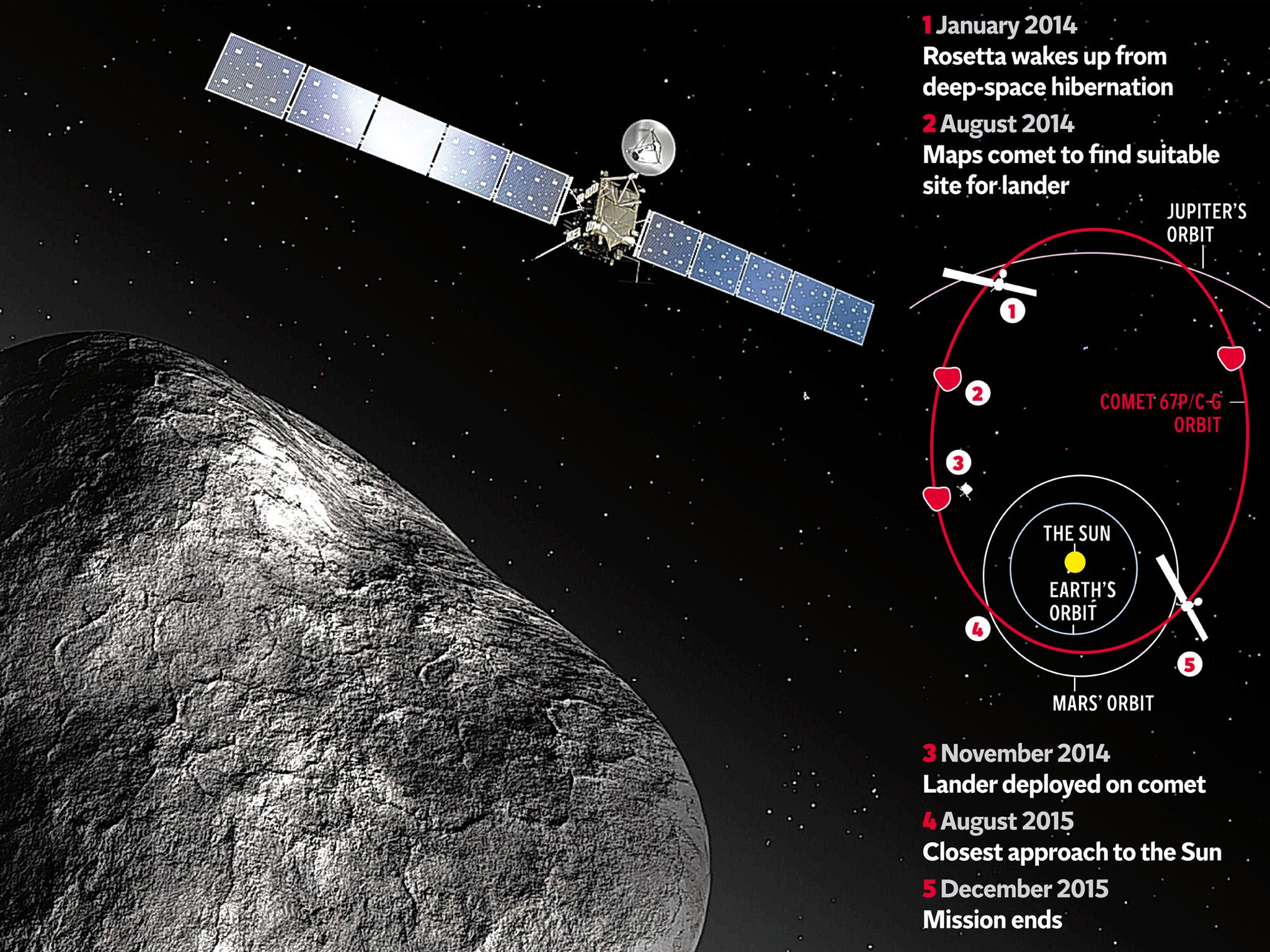'Hello, world!': Space probe Rosetta wakes up and calls home before embarking on its comet-landing mission

The signal came at 18:16 GMT. Rosetta, the comet-chasing space probe launched by the European Space Agency a decade ago, had woken up.
The craft’s first words, tweeted from 501 million miles away as it hurtled through the darkest reaches of the solar system, were simple: “Hello, world!”
But the relief they sparked at the mission’s ground control centre in Darmstadt, Germany was tangible. Because of Rosetta’s distance, it took 45 minutes for the signal to reach the ground stations - with every second of delay feeding fears that a technical glitch may have ruined the mission.
After 31 months of sleep, the probe is now ready resume its mission to drop a lander on the surface of a comet, furthering our knowledge of how the solar system first came into existence.
Rosetta is chasing 67P/Churyumov-Gerasimenko, an icy comet formed from cosmic debris some 4.6bn years ago, before material had formed to create the Earth and at a time when the sun was little but a new born star.
See the spaceship in plan, being constructed.. and on its way
Scientists hope the craft, which launched in 2004 from Kourou, French Guiana, will have closed the gap on its target ready for a landing by the end of the year.
Speaking after the signal came through, Andrea Accomazzo, the craft’s spacecraft operations manager, said: “I think it was the longest hour of my life, but also one of the most rewarding.”
Over the next few months Rosetta will chase down 67P before harpooning the frozen ball of dirty ice and attempting to make a soft landing on its surface. ESA scientist Matt Taylor compared the mission to the film ‘Armageddon’ - in which Bruce Willis’s character lands on an asteroid to prevent it from destroying Earth. “We look at comets as being a time capsule, they are relics from the beginning of the solar system,” he said.
The craft was effectively “put to sleep” to conserve power as it headed to regions as distant as the planet Jupiter, where the Sun's weak rays provide only limited amounts of energy. Unlike other long-distance space probes the craft has no nuclear batteries and instead relies on electricity generated by ultra-sensitive 15-metre long solar panels.
Ian Wright, Professor of Planetary Sciences at The Open University, said: “Now that Rosetta has woken up, we go back to waiting and hoping for the ongoing success of the mission. We hope the spacecraft will be operational, that our instrument survived hibernation, that the landing will be successful, that the drilling system will deliver samples of surface materials to Ptolemy, that the instrument operates as intended, and that the data can be communicated from the lander to the orbiter, and then back to Earth. Only then can we answer some of our questions. Even though Rosetta has woken up, many things still need to go right. Here’s to hoping that they do.”
Join our commenting forum
Join thought-provoking conversations, follow other Independent readers and see their replies
Comments
Bookmark popover
Removed from bookmarks